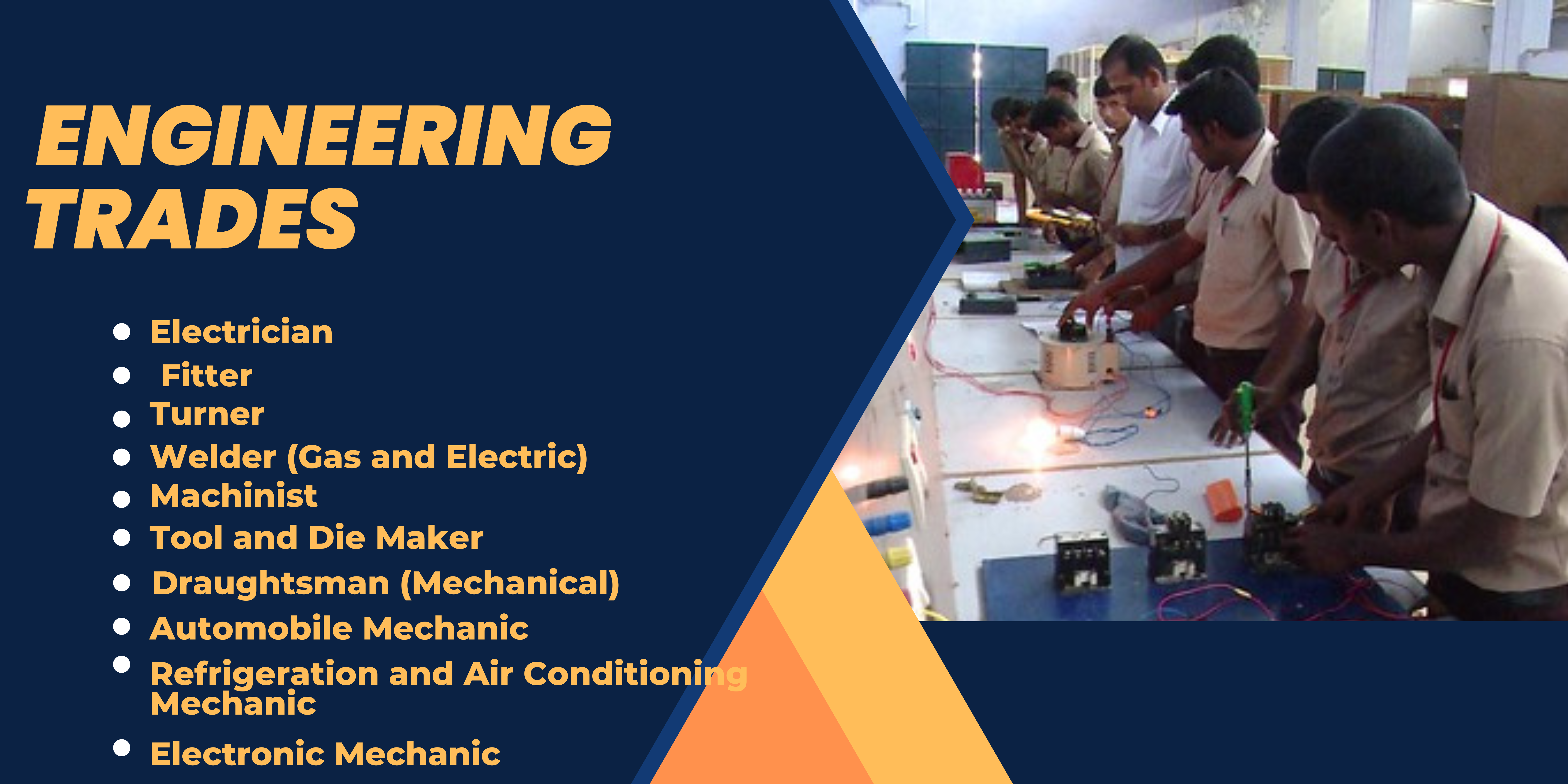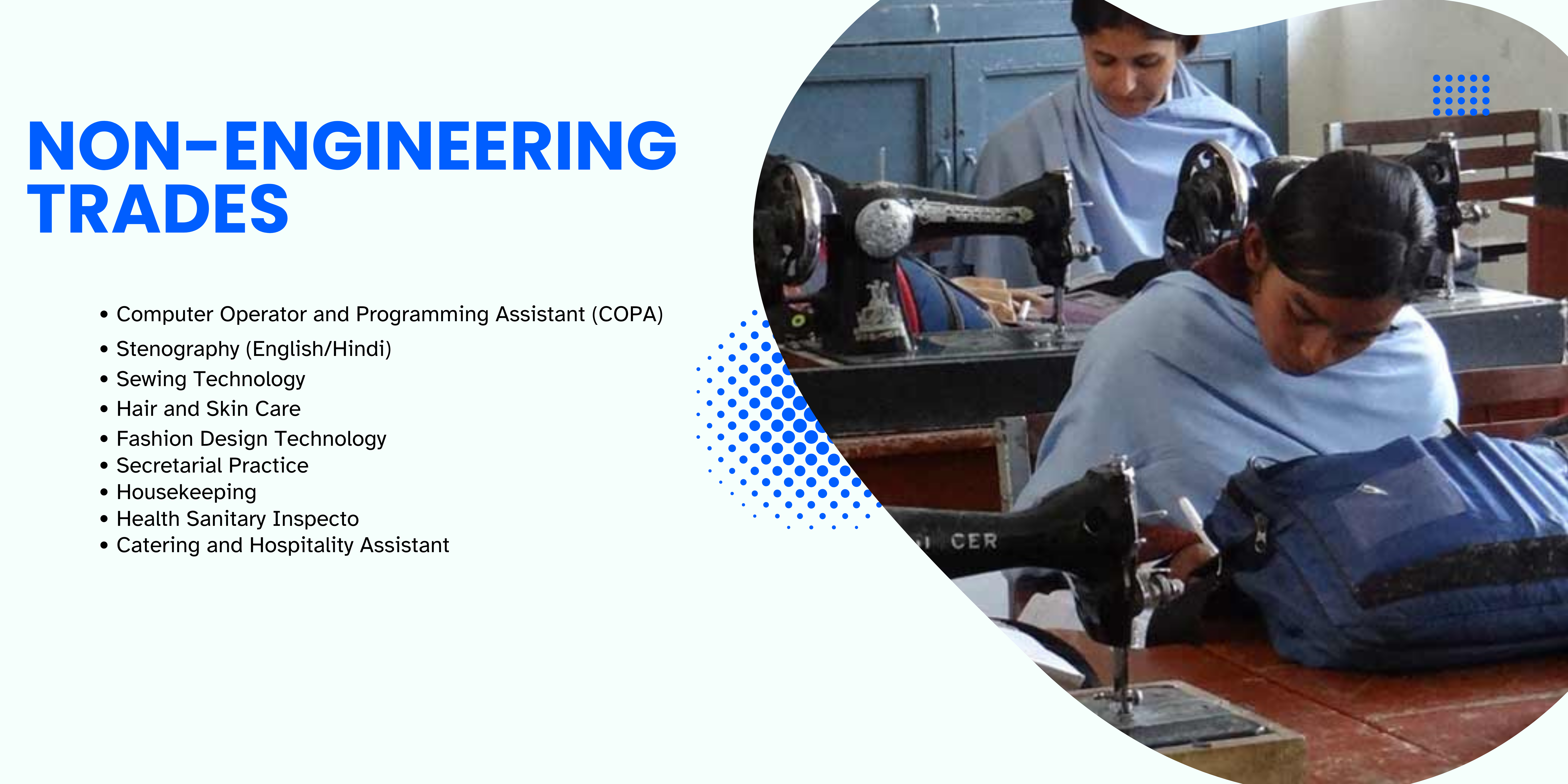Industrial Training Institutes (ITIs) in India offer diverse vocational training programs aimed at imparting practical skills and industry-specific knowledge. Below is an overview of popular ITI courses, their duration, eligibility requirements, certification, and career prospects:
Popular ITI Courses
Engineering Trades

1. Electrician
- Focus: Electrical wiring, equipment, and installations.
2. Fitter
- Focus: Assembling, maintaining, and fitting various machine parts.3. Turner
- Focus: Operating turning machines to shape metal parts.4. Welder (Gas and Electric)
- Focus: Welding techniques using gas and electric methods.5. Machinist
- Focus: Operating tools such as lathes, milling, and grinding machines.6. Tool and Die Maker
- Focus: Crafting precision tools and dies for manufacturing.7. Draughtsman (Mechanical)
- Focus: Drafting and designing mechanical components.8. Automobile Mechanic
- Focus: Repairing and maintaining automobiles.9. Refrigeration and Air Conditioning Mechanic
- Focus: Maintaining and repairing refrigeration and air conditioning systems.10. Electronic Mechanic
- Focus: Repairing and maintaining electronic equipment.Non-Engineering Trades

1. Computer Operator and Programming Assistant (COPA)
- Focus: Computer operations, software development, and programming.
2. Stenography (English/Hindi)
- Focus: Shorthand and typing skills.3. Sewing Technology
- Focus: Garment making, tailoring, and sewing.4. Hair and Skin Care
- Focus: Beauty treatments, hair cutting, and skincare.5. Fashion Design Technology
- Focus: Fashion designing, pattern making, and garment construction.6. Secretarial Practice
- Focus: Office management, clerical tasks, and communication skills.7. Housekeeping
- Focus: Maintaining cleanliness and managing hospitality premises.8. Health Sanitary Inspector
- Focus: Public health, sanitation, and hygiene.9. Catering and Hospitality Assistant
- Focus: Basics of catering, hospitality management, and customer service.Course Duration
- Range: Typically 6 months to 2 years, varying by trade.Eligibility
- Educational Requirements: Completion of 8th, 10th, or 12th grade, depending on the specific trade.Certification
- National Trade Certificate (NTC): Issued by the National Council for Vocational Training (NCVT).- State Trade Certificate (STC): Issued by the respective state council.
Career Opportunities
- Employment: Opportunities in sectors such as manufacturing, construction, maintenance, automotive, electronics, and IT.- Entrepreneurship: Potential to start own businesses.
- Further Education: Option to pursue additional training to enhance skills and qualifications.
ITI courses are designed to provide practical skills and hands-on experience, making them a valuable choice for students seeking to quickly and effectively enter the workforce.

_Ejryy.jpg)

Leave a Comment
To post comment, please